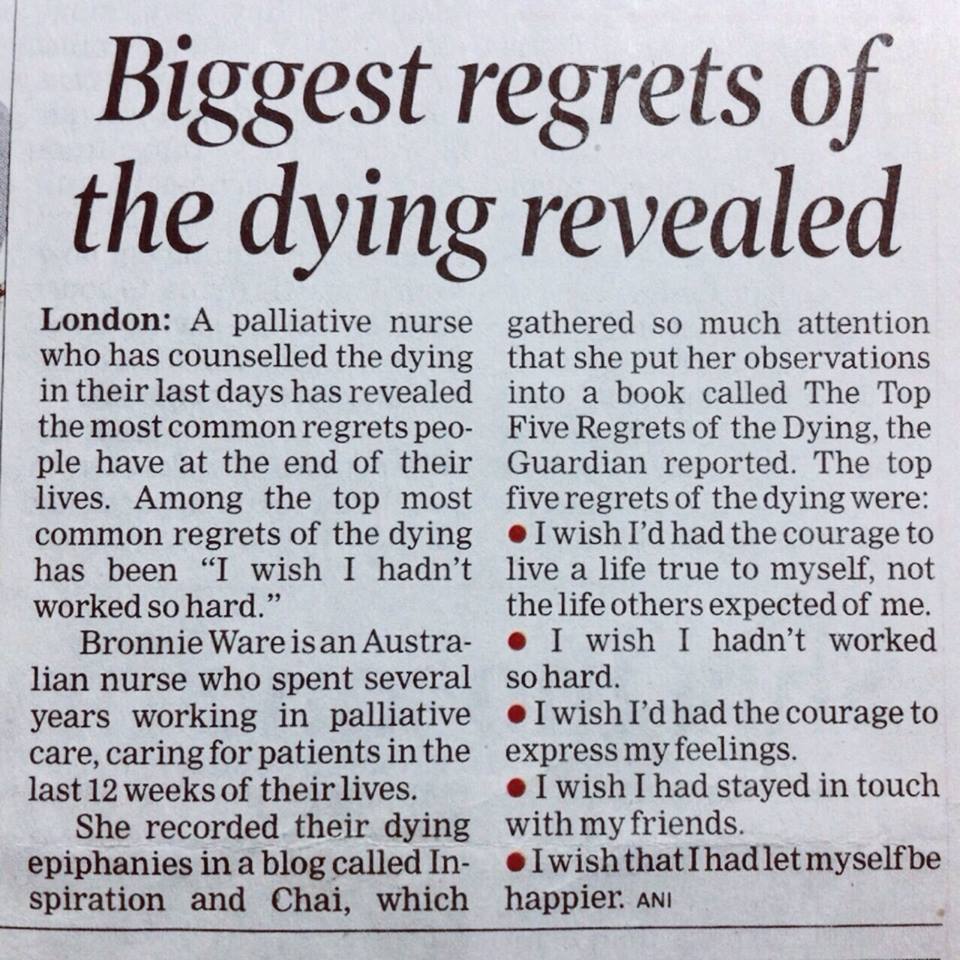
Was there a story or two in particular that were your favorite or that helped you have a new perspective on regret? You collected all these amazing stories from people. As we get older, what really sticks with us are the regrets about what we didn’t do. Inaction regrets are, in general, about twice as prevalent as action regrets. But as we age, as quickly as the 30s and certainly 40s, 50s, 60s, 70s, the inaction regrets take over. It showed that when people are young-say, in their 20s-they have roughly equal numbers of regrets of action (what they did) and regrets of inaction (what they didn’t do). Second, the big demographic difference, and I think it’s actually pretty profound, was on age. It verifies how common this emotion is, especially when we don’t label it with that toxic word. First, we asked people a question about regret without using the R word-we were trying to get past this fog machine of “no regrets.” We asked, “How often do you look back in your life and wish you had done something differently?” And we found 83 percent of the population is saying they do that, at least occasionally. I had two big takeaways from the quantitative survey. The big surprise was that there weren’t that many demographic differences.

Was there any particular insight that stood out to you from the quantitative research regarding demographics and regret? When I very sheepishly began talking about some of these regrets to people in private conversation, I got a surprising response-people were really interested in engaging they wanted to share. Then you have to imagine the counterfactual to what really happened, and then get back in your time machine, come back to present day, and see the present day reconfigured because of the decision you made. You have to get in a time machine in your head and travel back to the past. It’s incredibly cognitively complex because it requires mental time travel. And it’s an emotion that’s triggered when we think of something from our past and wish we had done something differently, done something in a different way, not done something, taken an action, not taken an action. It’s a negative emotion in that it’s an emotion that makes us feel worse, not better. It’s almost like this dam burst.Ĭan we make sure we have a working definition of what we mean by regret, so we’re on the same page?įirst of all, regret is an emotion.

The curious thing about it is that when I very sheepishly began talking about some of these regrets to people in private conversation, I got a surprising response-people were really interested in engaging they wanted to share. And when I looked back, I realized that there were some things that I regretted doing and others I regretted not doing. I found myself at a moment in my life when I had mileage on me. Can you share a bit about why you decided to write about regret and why now?ĭaniel Pink: For me it was personal. Josh Wright: Dan, you’ve written a number of books related to psychology and behavioral science: A Whole New Mind, Drive, To Sell Is Human, When, and now The Power of Regret. We discussed his World Regret Survey, which has cataloged over 23,000 regrets from people around the globe, the four core regrets, and how regret, while painful in the moment, can help us move us forward.

I invited Pink to discuss the book, and you’ll find our conversation below, edited for length and clarity. In The Power of Regret, author Daniel Pink investigates these questions and offers readers a glimpse into the psychology of those moments that we often wish we had back.


 0 kommentar(er)
0 kommentar(er)
